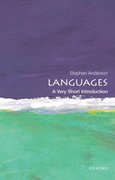The oddest English spellings, part 21: Phony from top to bottom
By Anatoly Liberman
I have written more than once that the only hope to reform English spelling would be by doing it piecemeal, that is, by nibbling away at a comfortable pace. Unfortunately, reformers used to attack words like have and give and presented hav and giv to the irate public. This was too radical a measure; bushes exist for beating about them. Several chunks of orthographic fat are crying to be cut off.







